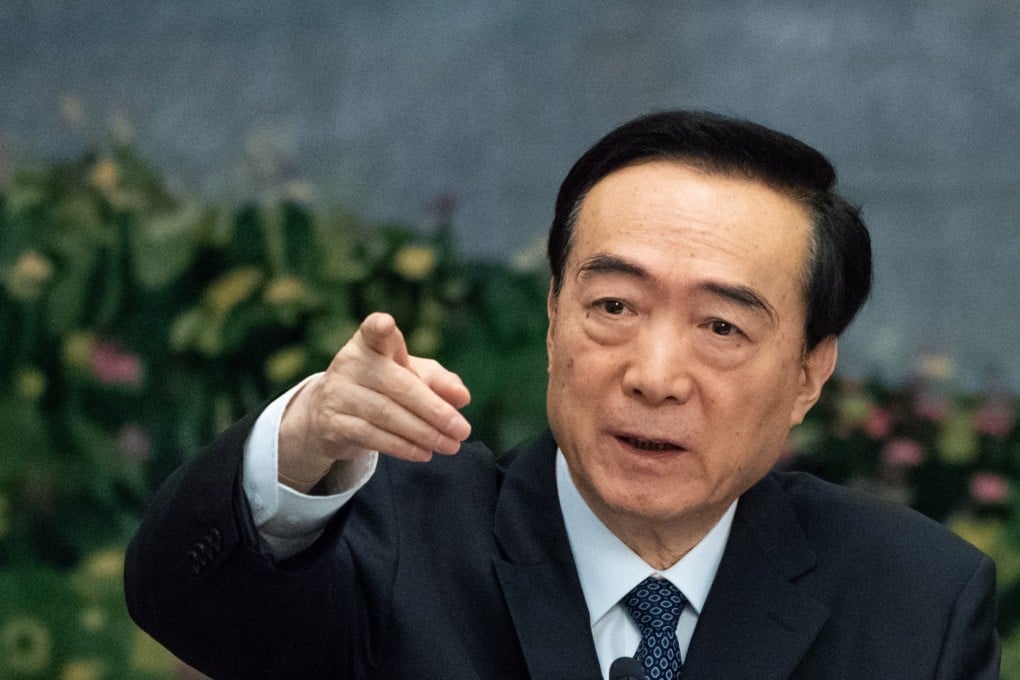Advertisement
Architect of China’s Muslim camps Chen Quanguo expected to stay on in Xinjiang for now
- Party boss behind clampdown in far western region believed to be in line for promotion, but source says ‘a change in leadership is unlikely’
- Despite international criticism, ‘Beijing sees that Chen is doing a good job in Xinjiang’ where stability is a priority, according to observer
Reading Time:3 minutes
Why you can trust SCMP

When Xinjiang officials took questions from the media recently about the crackdown in the western border region, it was the chairman, Shohrat Zakir, who did much of the talking.
Although Communist Party secretary Chen Quanguo was seated to Zakir’s left, he remained silent throughout the hour-long session at the National People’s Congress in Beijing.
But for the reporters in the room and the China watchers observing the event via television broadcasts around the world, there was no question of who was in charge.
Advertisement
After five years in neighbouring Tibet, Chen took the reins in Xinjiang in 2016. There has been speculation that Chen – who is a member of the policymaking Politburo – is now in line for promotion, but sources familiar with the matter told the South China Morning Post that the 63-year-old from Henan province will stay where he is for now.
“The [policy] direction has been set,” one of the sources said. “The overriding priority in Xinjiang now is to maintain stability – a change in leadership is unlikely.”
Advertisement

Advertisement
Select Voice
Choose your listening speed
Get through articles 2x faster
1.25x
250 WPM
Slow
Average
Fast
1.25x